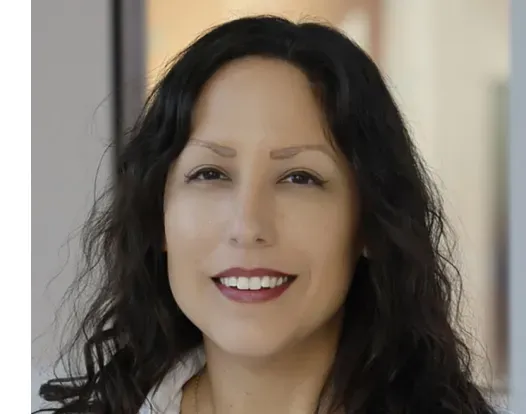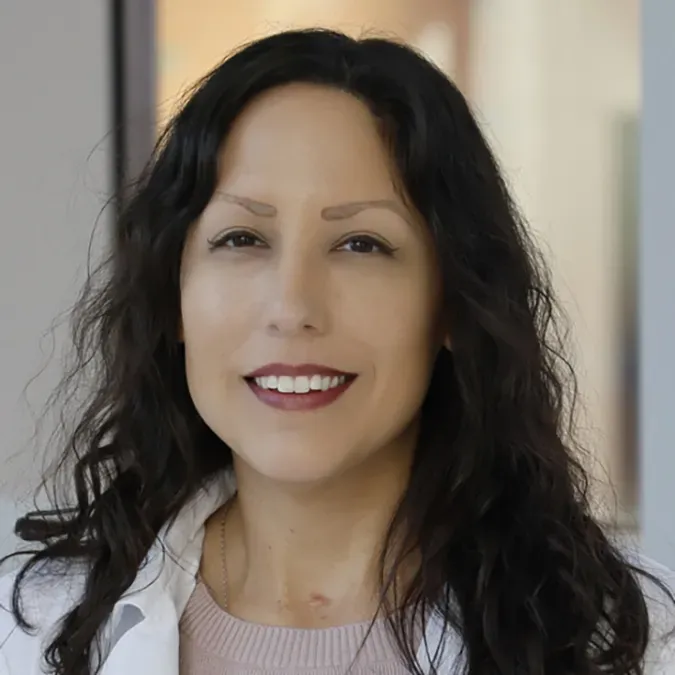These researchers have dedicated their careers to finding new treatments and cures for people with cancer.


For patients with breast cancer, the effects of lymphedema can have a profound impact on quality of life. Lymphedema—fluid build-up in the arms and legs due to damaged lymph vessels—can cause painful swelling and inflammation that haunts patients not only during treatment, but even after.
By flushing lymph vessels—that have been damaged during cancer therapies—to nearby veins, surgical interventions can provide essential relief, draining built-up fluids from the patient’s arm or leg. But, while sufficient research exists on lymphedema inflammation in certain areas of the body, few studies have explored how this condition affects the body as a whole. Even fewer—if any—have looked at how lymphedema-correcting surgeries could help. It’s a problem that Dr. Quiroga hopes to solve.
As a medical oncologist at The Ohio State University Comprehensive Cancer Center, Dr. Quiroga focuses on this gap in cancer research to improve pain management for these patients. During her fellowship, she conducted initial research with two mentors: Dr. William Carson, a breast surgical oncologist, and Dr. Roman Skoracki, a plastic surgeon and lymphedema specialist. Through this learning experience, Dr. Quiroga saw the benefits of surgical treatments for lymphedema, allowing her to imagine new ways to mitigate lymphedema in breast cancer survivors.
“Together, we discussed how lymphedema clearly had a significant impact on many of our patients’ lives and how we could work to learn more about the inflammatory process surrounding this condition,” Dr. Quiroga explains. “We wondered if the localized impact of lymphedema may have a more systemic inflammatory response as well.”
Dr. Quiroga was also curious to learn why surgery works for some but not others and whether more effective ways exist to predict those outcomes. “We hypothesized,” she continues, “that correction of lymphedema with lymphovenous bypass or similar surgeries may reduce the amount of inflammation detected in circulating immune markers.”
Pairing Patients with the Best Treatment Possible
Supported by a grant from Conquer Cancer®, the ASCO Foundation, Dr. Quiroga is studying how patients’ immune systems respond to breast cancer-associated lymphedema and lymphedema-correcting surgeries. This research may help doctors more effectively monitor the severity of lymphedema and better predict which patients will benefit from surgical treatment.
“With help from a breast cancer patient advocate, we worked to design a study that is minimally invasive for research participants, while optimizing our chances of promising results and patient impact,” Dr. Quiroga says. “We’re working to understand more about the systemic inflammation caused by lymphedema and how blood-based biomarkers might help us determine who may respond best to lymphedema surgeries.”
The ongoing study involves drawing blood from patients who developed lymphedema after breast cancer treatment. Samples are collected once before surgery to set a baseline, and three times post-treatment during follow-up visits. In addition, Dr. Quiroga and her team compare and evaluate changes in the blood levels of certain immune cells before and after surgery. Finally, they compare these observations with participant arm measurements and patient-reported experiences.
“I anticipate we will have a much better understanding of the impact that arm lymphedema has on patients throughout their bodies, including their systemic immune responses,” Dr. Quiroga says.
Although Dr. Quiroga’s study is ongoing, patients are already benefiting from her research. Her work may also have implications for improving lymphedema management in other areas of cancer care.
“One participant shared that her involvement in the study made her feel better about her condition, and that by being a part of lymphedema research today, she may be helping others not have to go through the same struggles,” says Dr. Quiroga, who was drawn to translational research during clinical rotations funded by a Conquer Cancer-funded program for medical students.
Advancing Quality of Life for Every Patient
As her study progresses, Dr. Quiroga plans future research to help patients beyond the breast cancer space. “It is also important to remember that lymphedema not only affects people diagnosed with breast cancer,” she explains, “but also patients with other types of disease like melanoma and gynecologic cancers.”
Knowing this, she plans to leverage her preliminary work to pursue a follow-up study with larger sample sizes. Additionally, she wants to evaluate the effectiveness of lymphedema-corrective surgeries as preventive measures.
“With the data we obtain from our current study on lymphedema in breast cancer survivors, I plan to expand enrollment for a larger validation study,” Dr. Quiroga says. “Additionally, I will move into further prospective studies, including those on individuals who choose to have lymphovenous bypass surgery at time of initial breast surgery prior to development of any lymphedema.”
Elevating quality of life by helping survivors live as pain-free as possible are the pillars of Dr. Quiroga’s work.
“I am very grateful that my Conquer Cancer grant ensures me protected time and critical funding to pursue the lymphedema research I am passionate about — research that I believe can have a big impact,” Dr. Quiroga says. “There are still so many avenues to investigate in the areas of cancer survivorship, lymphedema, and inflammation. My patients motivate me to continue this specialized research, and it is a privilege to do this work every day.”

